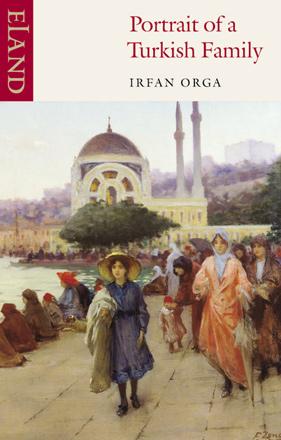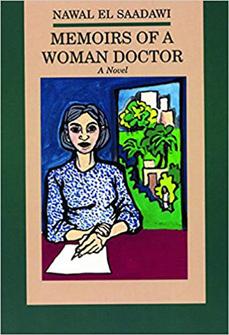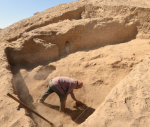You are here
A family torn apart by war
By Sally Bland - Nov 24,2019 - Last updated at Nov 24,2019

Portrait of a Turkish Family
Irfan Orga
London: Eland, 2004
Pp. 316
Irfan Orga’s memoir of growing up in Istanbul is written with such elegance that, at times, it approaches poetry. “Looking back, it seems to me that the whole of early childhood is linked with the sound of the sea and with the voices of my parents and grandparents as they sat eating breakfast on the terrace overlooking the gardens. Still can I feel the content of childhood’s awakening in the low, sunny room filled with the reflected white light from the sea.” (p. 7)
Orga’s family was wealthy, their life cushioned by devoted household servants. His mother was veiled and seldom left the house. Yet, all this was to change, battered by the forces of history — the ravages of World War I and the break-up of the Ottoman Empire. After Irfan’s father went missing in action, a dramatic change hit the family’s fortunes, most obviously affecting the role of his mother.
Orga records charming childhood memories —visiting the coffee house and the mosque with his grandfather, before he died, and the bathhouse with his impervious grandmother. There is also his circumcision and his first day at school—a district school from which his parents quickly withdrew him when they found he had been beaten. He then attended the French school, where the students were mainly turkish. As he recalls, “It was the fashion to ape our elders and to speak French in public, a rather grand and adult thing to do.” (p. 54)
This was the fall of 1914; and pleasant childhood memories are soon replaced by the privations of Istanbul’s civilian population during the war. Irfan’s father sold his business, moved his family into a smaller house, let go two of their servants. Food was hoarded, and the French school closed. His uncle was conscripted and the same was expected for his father. His mother prepared a shoulder bag for her husband. “I think she sewed her heart into that bag too for after my father had gone we who were left saw nothing of her heart.” (p. 72)
The family somehow adapted except for the autocratic grandmother who could simply not fathom the need for reducing the lifestyle to which she was accustomed. After her son was called up for the army, she shocked everyone by remarrying an elderly, very rich man whose grudging help was to shield the family from dire poverty for a time. Especially vivid are Irfan’s memories of “that night, when the enemy spies set fire to the wooden houses of Istanbul, when they burnt like matchwood under a summer sky! The street was daylight for all the houses on both sides were a lurid, blazing mass”. (p. 102)
The family lost everything and were forced to rely on the charity of the grandmother and her rich husband. They moved into the upper floor in a house he owned, but Irfan’s mother was never really the same: “Ever since the fire she had been unapproachable, far away from us, and several times I had caught her remote eye fixed on Mehmet [his brother] or myself, as though she asked herself what we had to do with her.” (p. 109)
However, with the new house, his mother gained a new lease on life. For the first time, she went out in public alone to secure food for her children and inquire about the fate of her husband. She got a job sewing and did needle work for sale. She helped her neighbours and achieved their respect and gratitude so that they helped her in turn. A truly remarkable aspect of the book is the immense empathy Irfan displays with his mother, at his young age, even as her growing mental imbalance and desperate survival tactics cut him to the core. “She was an odd contradiction, one moment spineless and the next bounding with immense vitality. In one way, her own unobtrusive way, she was the forerunner of Kemal Ataturk — for she emancipated herself years before her time.” (p. 110)
Orga’s descriptions of the last years of the war are heartbreaking as his family slips into abject poverty along with most of the population and disintegrates in many respects. The end of the war brought new tensions, but the Orga brothers were able to enrol in the Military College, which paved the way for Irfan to set sail for England in 1941, where he spent the rest of his life.
Just as fascinating as this memoir itself is the afterword written by Irfan’s son, Ates Orga, who had the memoir published in 1950, to much critical acclaim; since then, it has been reprinted twice. As much as “Portrait” is filled with dramatic events, it exhibits a fairly representative trajectory for a family of that social class at that particular time. The afterword, on the other hand, reveals the very atypical life led by Irfan, his wife and their son in post-war England and Ireland.
Related Articles
My Grandmother: An Armenian-Turkish MemoirFethiye CetinTranslated by Maureen FreelyLondon-New York: Verso, 2012Pp.
This book, like the “two novels, six short story collections and a book about her friendship with the artist Princess Fahrelnissa, her mentor” by the same writer, is sure to help her reach immortality, in the process making the reader privy to a rich life and sharp, inquisitive mind that could be the envy of many, tens of years younger than her.
Memoirs of a Woman DoctorNawal El SaadawiTranslated by Catherine CobhamLondon: Saqi Books, 2019Pp.
















